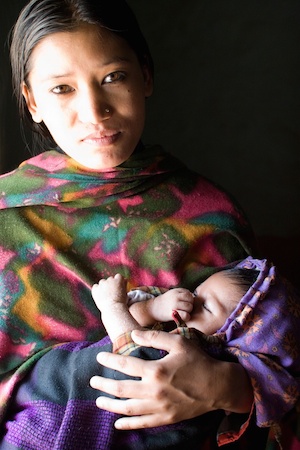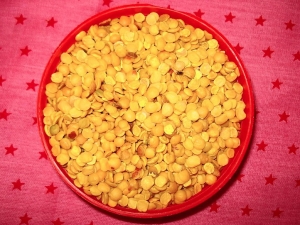Jesus has risen from the dead, has made a mockery of evil, has defeated death, and is alive! Now he says, “Look! I am making everything new!” (Rev 21:5)
Film from The Work of the People.
Jesus has risen from the dead, has made a mockery of evil, has defeated death, and is alive! Now he says, “Look! I am making everything new!” (Rev 21:5)
Film from The Work of the People.
It’s what we all want isn’t it? To see life come to the dry bones? To see skin and flesh clothe hollow skeletons. To see the goodness and mercy of the Father enfleshed. To see the dream of a distant land flowing with milk and honey brought to our land. To see hope restored and death reversed. It’s what we all want isn’t it?
Here’s another meditative moment from The Work of the People.
Many are familiar with the line in Psalm 23, “…goodness and mercy will follow me all the days of my life…” It’s a nice thought, but a one that does not nearly capture the tenacity of God’s goodness and mercy. These qualities don’t follow us around like a lost puppy looking for its home. Goodness and mercy are relentless, tenacious and precise in their pursuit. They will track us down like a hunter tracking it’s prey. They will seek us out like a heat-seeking missile. Simply put, God will hunt us down with his goodness and mercy – through the valley of the shadow of death – through the suffering of the loss of Eden – right to where we are today in the middle of Lent, preparing to celebrate and welcome the resurrection of the one who made it all possible…
Here’s another meditative moment from The Work of the People.
April 13 – 20
In the bible, fasting and prayer usually go together. Fasting isn’t simply about the lack of food, or the lack of anything else for that matter, but rather an intensified focus, or shift in perspective from something temporal to God. It’s about bringing our attention to the Lord in a specific way for a particular time by reducing our dependence on something physical. Our physical hunger reminds us that we are really hungry for God.
It makes sense, then, that fasting and prayer go together. However, it seems that if our lifestyles are not extending grace, mercy and justice in practical ways, our fasting is distasteful to God. Isaiah helps bring clarity to this issue in chapter 58 where he links “true fasting” with feeding the hungry, sharing with the poor, keeping the Sabbath and in general, living justly.
“Is not this the kind of fasting I have chosen: to loose the chains of injustice and untie the cords of the yoke, to set the oppressed free and break every yoke? Is it not to share your food with the hungry and to provide the poor wanderer with shelter – when you see the naked, to clothe them, and not to turn away from your own flesh and blood?

This fast is an invitation to hold both fasting and care for the hungry together. To that end we invite you to participate in a very practical fast for one week – that is to eat at or below the level of the average Nepali person.
For just about all of us, this will mean eating less – less quantity as well as less variety.
The fast starts Sunday April 13 (with an evening of prayer and worship) and we’ll break the fast on Easter Sunday, April 20.
Isaiah 58 makes it clear that we are to respond to the “hungry” in our world in practical ways.
God has linked WCV with the Himalayan Region Vineyards in a deep and profound way. Many of our brothers and sisters in this region live on minimal nutritional requirements. We are one body, and Paul admonishes us to “share each other’s burdens” (Gal 6). One way we can do this is to eat at their levels. This will allow us to consume less, while practicing solidarity with them.
Here are some facts and figures concerning the average Nepali that may help frame the conversation:
Canada’s average salary approx. $40,000 ($110 / day) Nepal’s average salary approx. $1,200 ($3.30 / day) 25% of Nepal’s population live below poverty line of: $1.25 / day. (Nepal Bureau of Statistics) Major concerns include little or no access to primary health care, education, clean drinking water and sanitation services. Food security and poor nutrition are major concerns, especially in rural areas. (IFAD) Nepal has one of the highest early childhood mortality rates in the region. 2/3 of Nepali children are severely deprived and just under 40% live in absolute poverty. 50% of children under 5 are stunted and over 2/3 are underweight due to malnutrition. (Unicef)
By embracing their diet, we are in a way embracing our brothers and sisters in Nepal. Eating their food in a way places them in the centre of our tables every day.
By spending a week eating at these levels, most of us will have saved money on our grocery bills. Keep track of what you save – or calculate it in whatever way makes sense to you. Then we encourage you to donate it to WCV (mark it for Nepal) and we we will send it to Nepal to be used to feed those who are poor.
If you do not normally spend money getting your food, but have participated in this fast, we encourage you to give what you can to the “First Fruits” basket and the food will be shared at Drop-in.
This fast is not just a clever way to raise money for those in need. It can do something in us and to us. As we turn ourselves towards God in prayer and fasting, we can be transformed. Our prayer is that WCV will draw closer to God as we participate in this “fast that he has chosen”.
Throughout the week we will be having regular stories sent from the School of Justice, who will be in Nepal during this time. They will give us short meditations to help us both understand the plight of the people there as well as God’s heart for them and us!
Checklist for preparing for this week:
2 cups rice (Basmati or Long grain preferred)
4 cups water.

The water we need to live – that we need to really live – does not come from earthen springs. It is not discovered in any well dug by human hands, not can it be drilled by any rig of human ingenuity. This water is not pumped, bottled, chlorinated or dammed up. It does not stagnate in forgotten pools nor flow with the ocean’s tide. The water we need to truly live comes from an eternal source, springing from the resurrection into our lives, filling cracks and crevices with it’s cool, beyond-the-grave touch – transforming all in it’s path.
Here’s another meditative moment from The Work of the People.
On March 5, we entered the season of Lent. A season, 40 days leading up to Easter, that the church has historically observed as a time of preparation. A time to prepare hearts, bodies and lives for the life that’s made available through Jesus’ resurrection. Lent is only helpful if it points us towards resurrection. Giving up for Lent is only useful if it points us to all that God has for us. Dying to ourselves is only a good thing if the Holy Spirit can come afterwards and bring us to life. This short video is a great reminder that God is not about scarcity and that Lent is intended to help us prepare for more, not less.
Pray As You Go – a daily contemplative podcast that leads the listener through a series of meditative prayers and scripture readings. Each episode is about 10 – 13 minutes long. You can listen right from their website or subscribe to it via iTunes podcasts.
Lent for Everyone – this is an online devotional created by N.T. Wright. It includes daily scripture and a well crafted and thoughtful devotion by one of the foremost New Testament scholars of our time. (You have to sign up to view it)
Living Lent Daily – features prayers, thoughts and more each day to inspire you throughout your Lenten journey. A new article will become available daily throughout Lent. These are quite short.
Have you used any of these resources? Let us know how they were helpful in the comment section below!